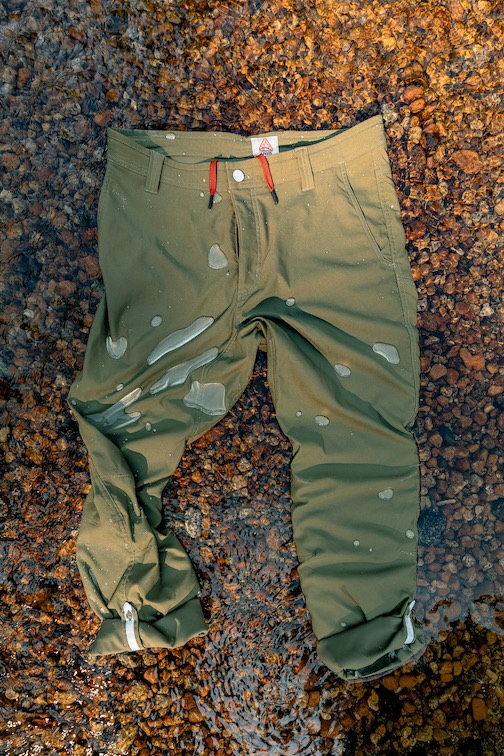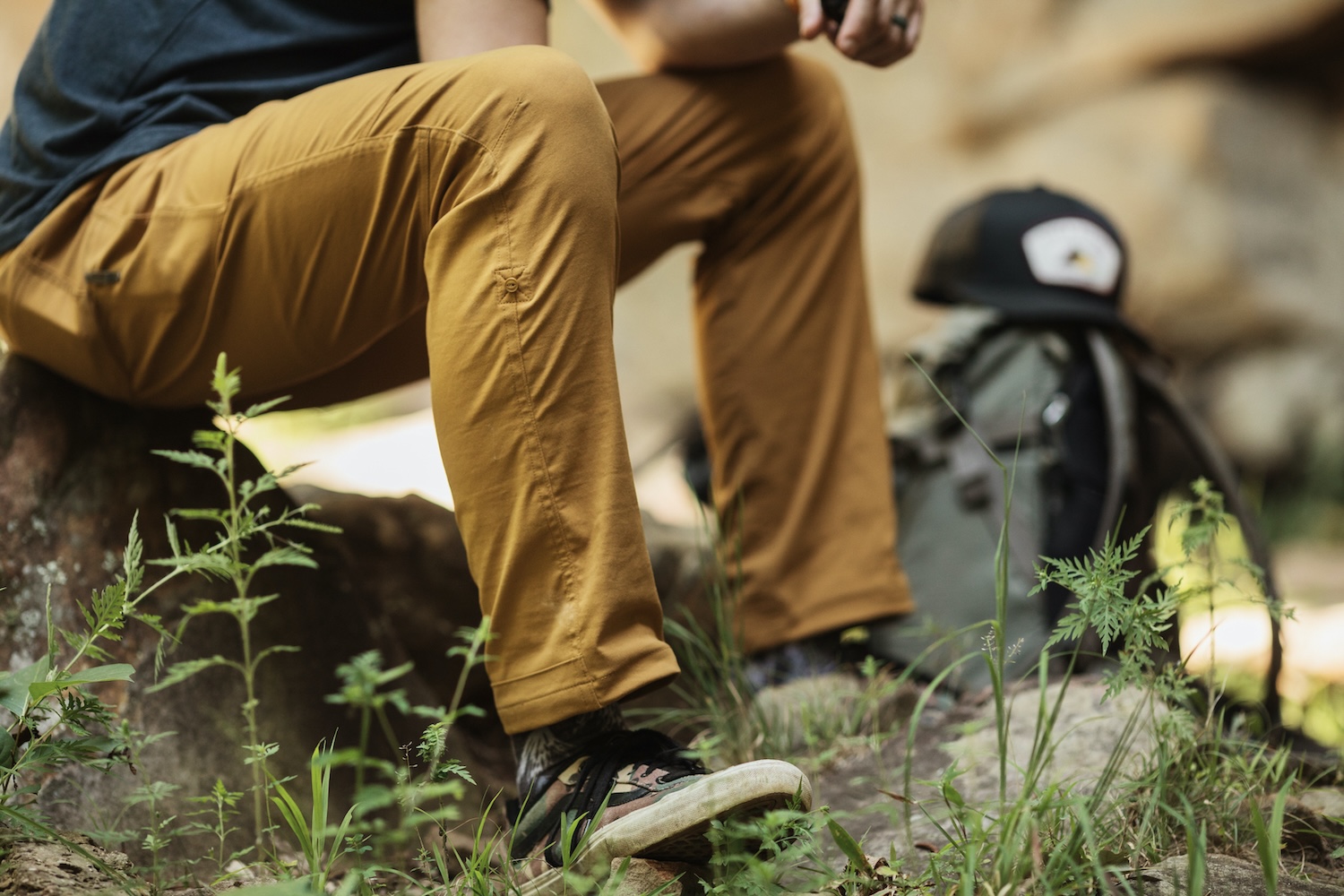
Picture this: You’re sitting in the shade of an umbrella, enjoying a day at the beach, when something on the horizon catches your eye. You lift your sunglasses and squint to get a better look. It’s a buoy bobbing on the waves, ready to help boaters navigate the water. And one day it will be recycled into a pair of shorts.
The idea may sound far-flung, but the outdoor clothing company Livsn Designs is doing just that. The company takes a principles-based approach to design — meaning new clothes are created with its core values, sustainability and durability, at the forefront. The first step is finding the best-performing, high-quality material for the job.
“I think that's actually the most sustainable thing you can do,” said Andrew Gibbs-Dabney, the founder and CEO of Livsn. “If you start there, you're already ahead of most things because it's going to do its job well. Then, if you get a durable material, it's going to last a long time. You combine those two things, and you've got something very sustainable before you've ever even touched what it's made of.”
When it came to creating lightweight pants that would perform well in the elements, the designers decided on nylon. The next step was putting out a call for high-quality, sustainable nylons, preferably one produced from a recycled waste product.
“What came back was a whole lot of really great recycled options, but this particular program, Blue Ocean, stood out,” Gibbs-Dabney said. “It was the best fabric, and it had this amazing story where the raw material — or 70 percent of it — is sourced from recycled fishing buoys that were all gathered from within 100 miles of the mill in Taiwan.”

To make Blue Ocean Nylon, retired buoys that may otherwise be left adrift in the ocean are collected, ground into tiny pieces, heated and pulled into thread, he said. That thread is turned into the fabric used to create Livsn’s Ecotrek line of trail shorts and pants, which also consist of 25 percent traditional nylon and 5 percent Spandex.
Despite the unique choice of material, the shorts feel similar to cotton. They’re soft, stretchy and airy enough to be comfortable in the heat — a quality not typical of synthetic materials — thanks to the lightweight and porous buoy nylon, Gibbs-Dabney said.
But there are downsides. Using Blue Ocean Nylon means it takes significantly more time to get the fabric from suppliers, because they source the recycled yarn per order rather than keeping inventory on hand.
“If we just wanted a nylon pair of pants, they'd say, ‘Okay, here you go’ in 30 days. Our lead times are more like 90 to 120 [days],” Gibbs-Dabney said. “What we're trying to do to overcome it is to buy more bulk of the fabric, even undyed, so that we can have that on hand to produce on demand. Which is a whole lot more nimble and more sustainable than making a whole bunch of pants that we're not quite sure people need right now.”
Livsn has yet to measure the potentially reduced environmental impacts of its Ecotrek line, like carbon dioxide emission reductions from using recycled yarn instead of virgin material. But the company prides itself on producing high-quality products that will serve people for as long as possible, Gibbs-Dabney said.
“One thing I can speak to, at least from our principles and values point of view, is that making a product that lasts two to three to four times longer than the competition automatically sees a two to three to four times reduction in footprint,” he said. “Because another pair of pants, another product, didn't need to get made in that time.”
To extend the life of its products as long as possible, the company recently launched a resale marketplace where used clothing from the brand can be sold instead of sent to the landfill. Livsn also offers free repairs for pieces that broke when they shouldn’t have and repairs at a cost for wear and tear.
“The impact of that, while not quantifiable, is really incredible,” Gibbs-Dabney said. “People are choosing … to repair it, and keep it longer, and give it a whole new life.”

Gibbs-Dabney expects to see the Ecotrek line expand alongside the company, including women’s pants and women’s and men’s overalls next year.
“One thing that will make us even more special as we go … is that our values and mission are all built around making the best, most sustainable products we possibly can,” he said. “And our approach is iterative. So if we're not quite there yet, I believe that we will get there over time because this is our goal, and this is our mission, and it's who we are, and we'll continually improve what we're doing.”
Editor's note: The author received a pair of Ecotrek trail shorts to test. Neither the author nor TriplePundit were required to write about the brand.
Images courtesy of Livsn Designs

Taylor’s work spans print, podcasts, photography and radio. She brings her passion for covering social and environmental issues through the lens of solutions journalism to her work as assistant editor.














